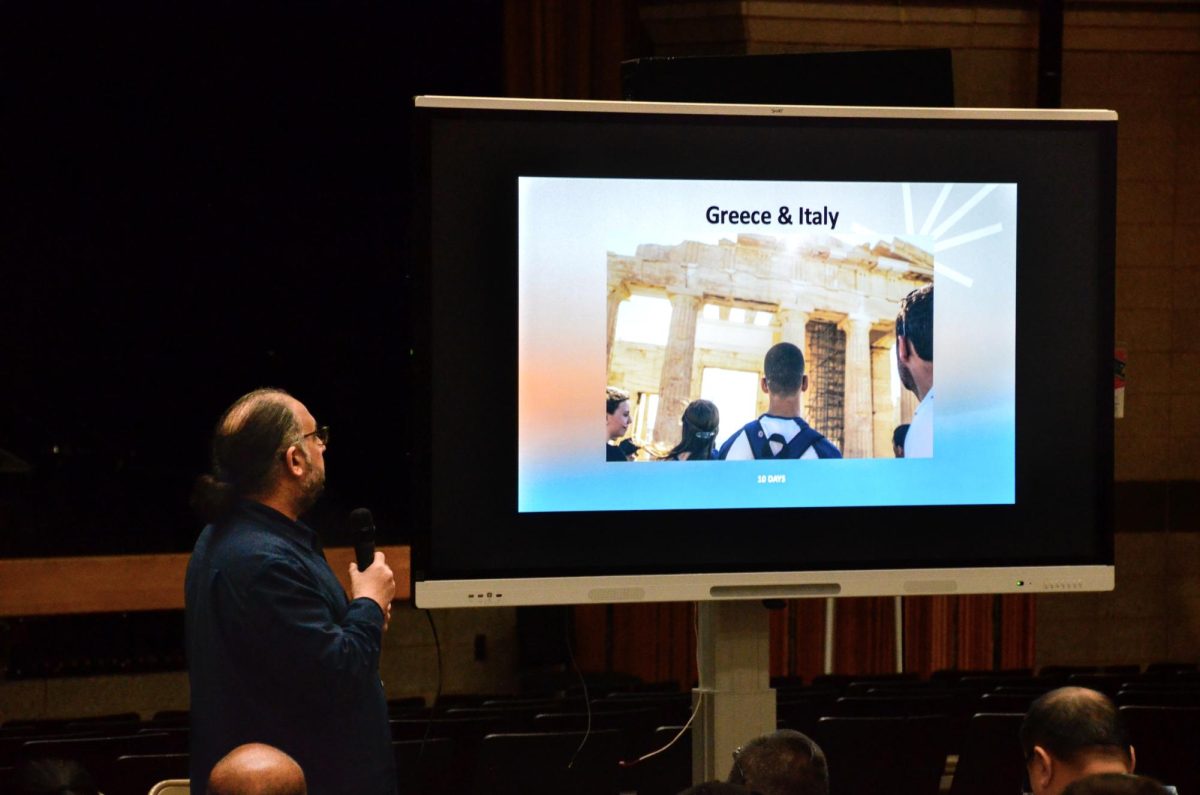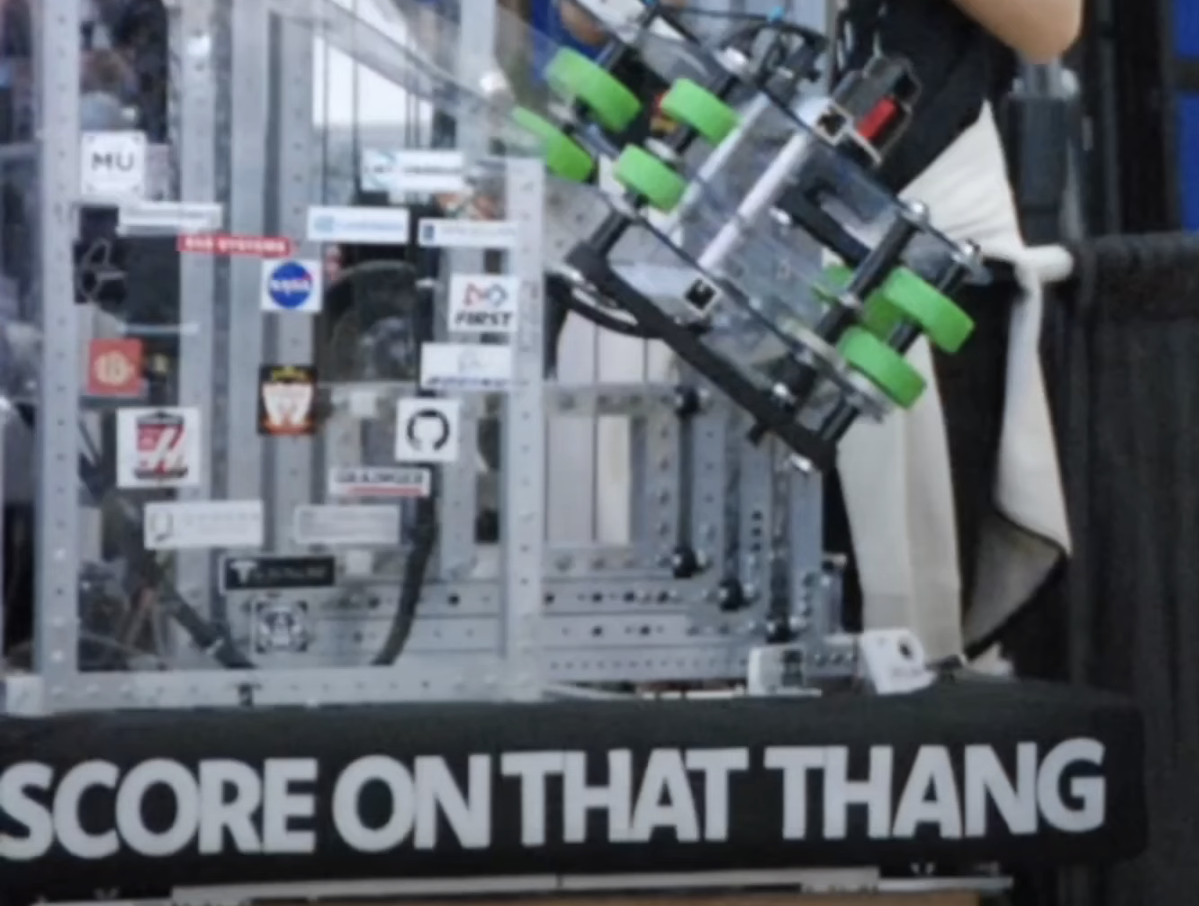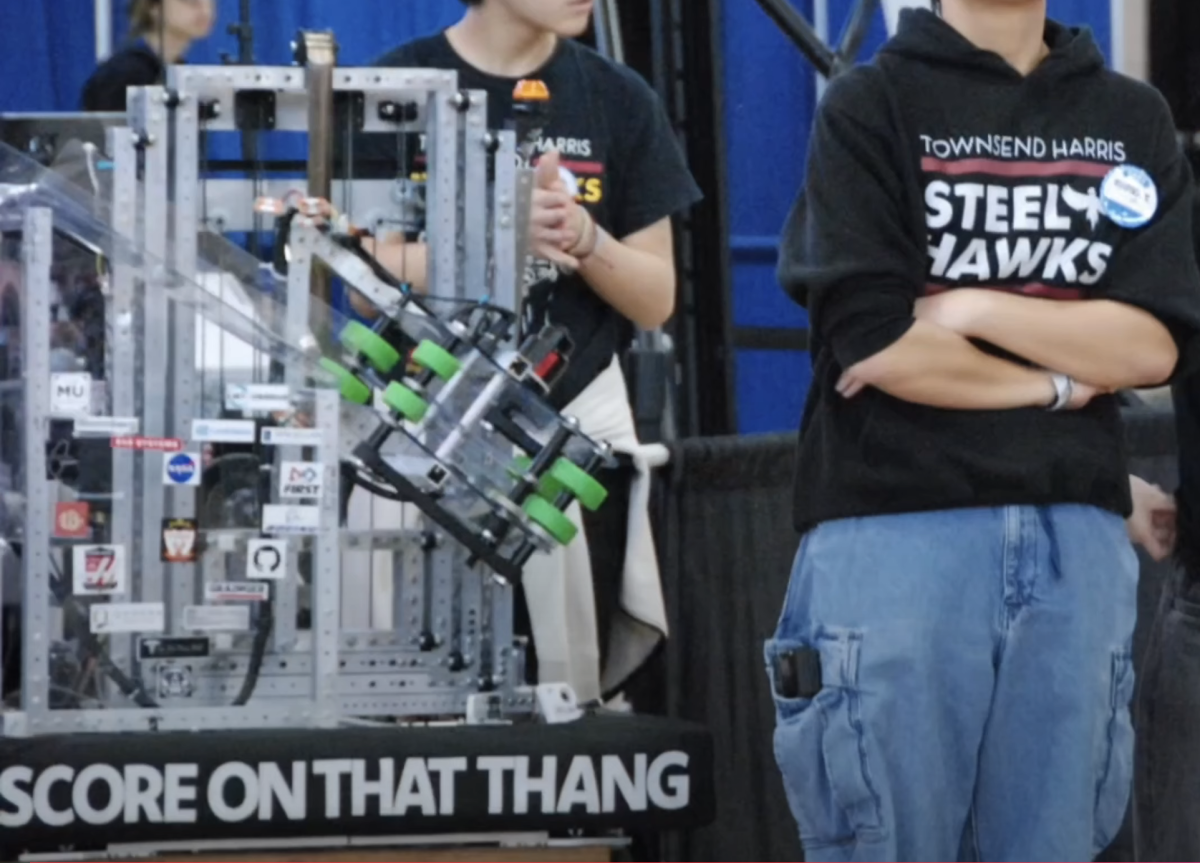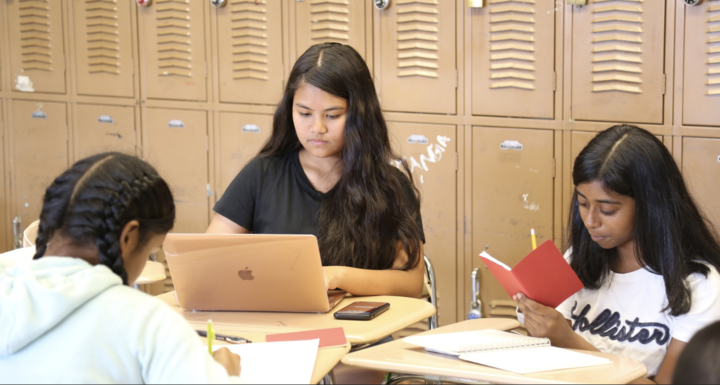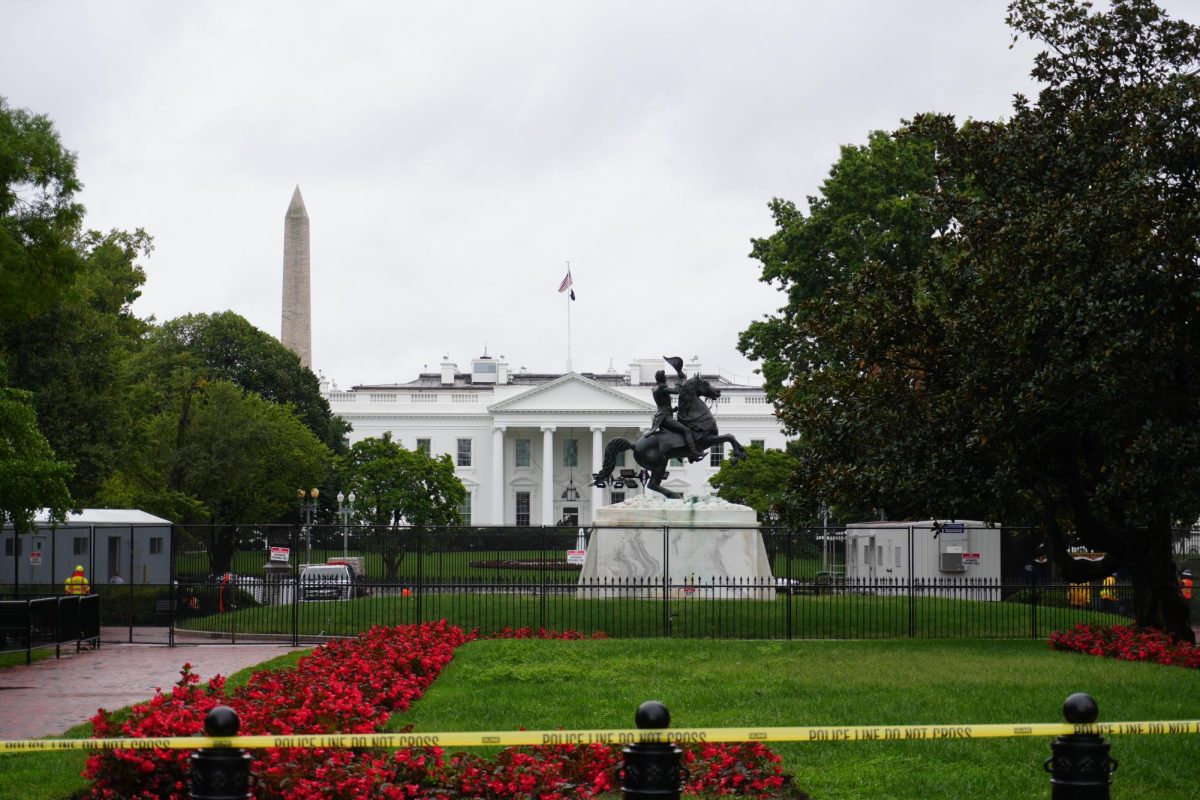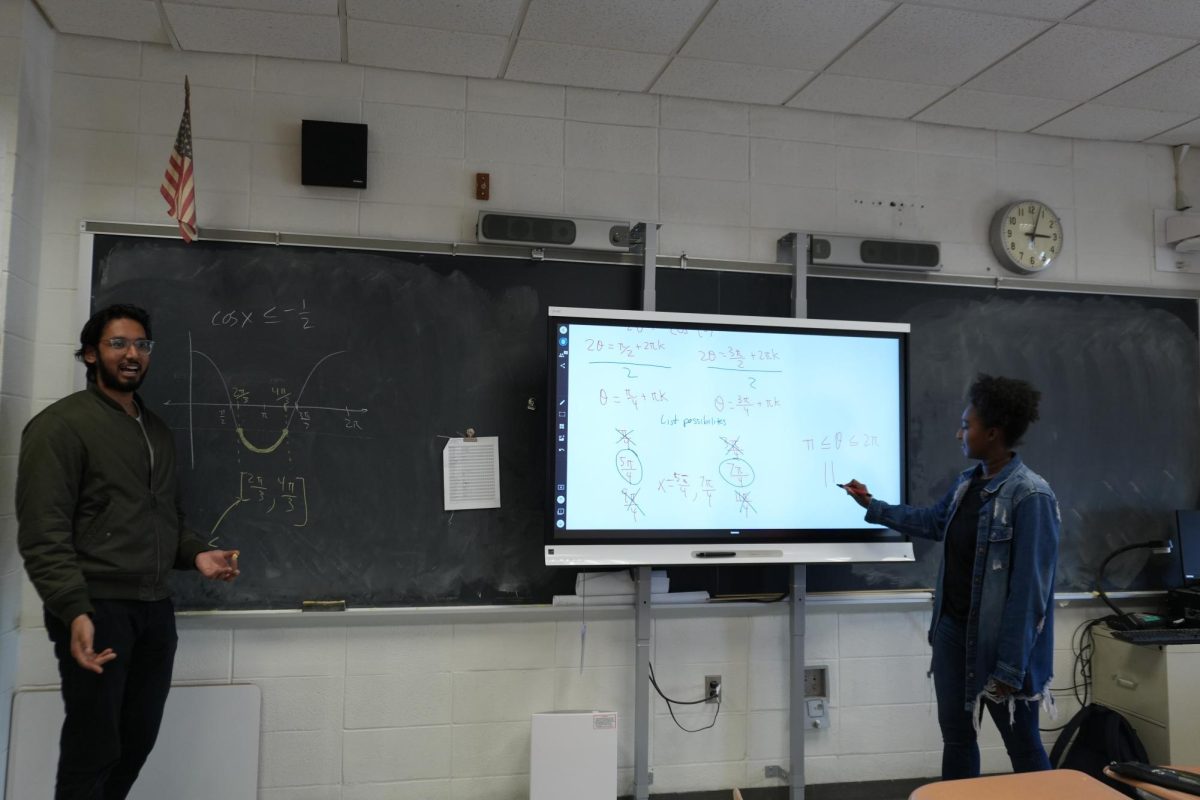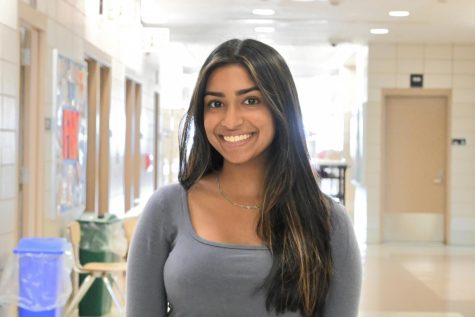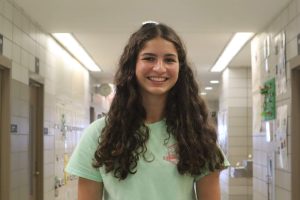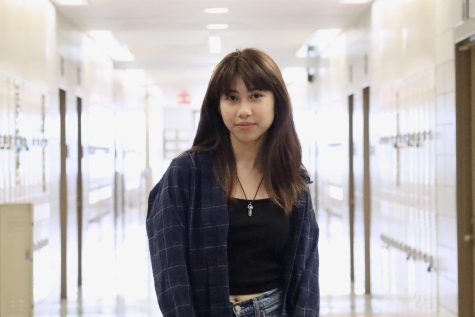
On Tuesday, November 21, a senior climbed part of the Townsend Harris entryway and hung a Palestinian flag. The next day, the student posted on social media that they “got expelled” for hanging the flag. Though the school administration disputes the student’s account, the claims spread across social media quickly, with numerous student posts and comments expressing outrage and criticizing the school for demonstrating an anti-Palestinian bias. On Sunday night, Principal Brian Condon sent an email to students and families warning of “calls for protests within the school,” reminding students to follow behavioral expectations, and disclosing that he was collaborating with the NYPD Safety Division to plan for safety in the building. On Monday, students were met with a police presence, as NYPD officers patrolled corridors and checked IDs as seniors left for Queens College classes. There was no noticeable protest.
The senior who hung the flag on the entryway said in a statement to The Classic that they did so to “show support for Palestine [and] to send out a message of respect for those who support Palestine.” The student said, “I hung it because I wanted to show respect for those lost. I wanted to make people that support Palestine see that they’re not alone, that they can feel heard and safe within their school.”
In response to the student’s initial claim that they were “expelled” as a result of this action, Mr. Condon told The Classic that no student had been expelled from Townsend Harris. Without naming the student, Mr. Condon called the post “a fabrication by the student” and “a manipulation to draw attention to the student to increase [the student’s] notoriety.” Mr. Condon did not respond to a question about the specific reason for why the student was disciplined, but he did generally condemn climbing the building itself. He said, “climbing our building edifice is clearly a violation of the citywide behavioral expectations.” The student told The Classic that they received an official determination of their punishment on Monday, November 27 and claimed to have received an email saying that they had been suspended (but declined to share the email with The Classic).
The student claimed that Townsend Harris staff members speaking on behalf of Mr. Condon last week specifically discussed hanging the flag as the reason they would be suspended and eventually “transferred” from the school.
“They weren’t even mad I climbed the gate,” the student said. “Let’s be real: that’s not the craziest thing I’ve done. They were extremely bothered by my ‘insensitivity’ towards certain groups of people by putting up the flag.”
Two of the staff members the student mentioned as the source of these conversations, Dean Charlene Levi and Attendance Coordinator Yvette Reyes, denied the student’s accounts to The Classic. Ms. Levi said she cannot confirm or deny if a student has been suspended. However, she said, “I can let you know that [the student] was not suspended for putting a flag up.”
Student discussions on social media about this incident have only intensified in recent days, and they come at a time when tensions over how NYC schools handle conversations about Israel and Gaza are growing. Many discussions at Townsend Harris have centered on how students and teachers should handle their personal political views in an educational environment.
With so much focus now on what constitutes appropriate expressions of political speech in school, The Classic has investigated how issues surrounding not only student but teacher expressions have played out in the past two months.
I. Student Protest
Though the administration rejects the idea that the display of the Palestinian flag had anything to do with their response to this student’s behavior, the aftermath of the incident has led to the administration taking its firmest stance yet on student protest and its potential for disciplinary repercussions. In his Sunday night email warning of potential protests, Mr. Condon acknowledged students’ “First Amendment right to free speech,” but reminded them “to follow the City-wide Behavioral Expectations.” He wrote, “Students that disregard these behavioral expectations will be subject to disciplinary consequences consistent with the NYC Behavioral Code.” The email also asked families to remind their children to uphold the Ephebic Oath, the pledge that all THHS students take to leave their city “greater than [they] found it.”
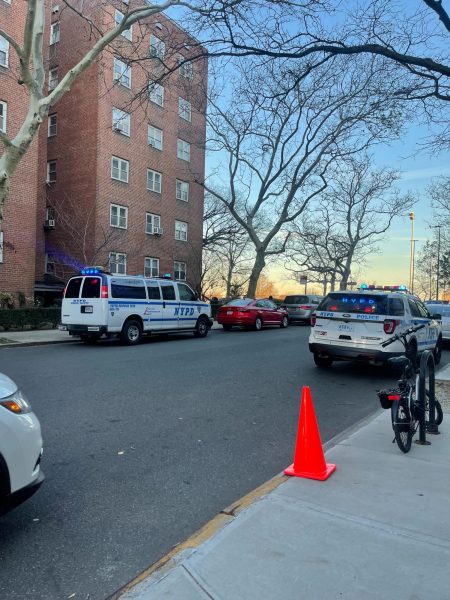
A post on the Instagram account “@thegenerationforliberation” on Friday night asked students to “wear [their] Palestinian flags, keffiyehs, or colors of the flag” to school on Monday, November 27 in solidarity with the student who hung the Palestinian flag. In a conversation with The Classic, the account claimed to be student-run but did not disclose any further identifying information.
The @thegenerationforliberation post was liked over 2,300 times, but few students appeared to join its call for a demonstration on Monday.
On its Instagram page, @thegenerationforliberation accused Mr. Condon’s email of quelling free speech: “Using the NYPD to keep students from expressing themselves within their right of freedom of expression is an inappropriate response.”
In an interview with The Classic, Mr. Condon said Wednesday that the concerns that led to the NYPD presence in school were unrelated to student calls to wear clothing in support of Palestine. He said school officials were concerned about social media posts and comments they believed might be advocating for violence. At one point, he referenced a comment made on a Classic Instagram post about the student who hung the Palestinian flag. The commenter wrote, “Be violent, be loud. This isn’t a peaceful time. This is genocide.” Mr. Condon also referenced demonstrations planned by students at Queens College that he said the THHS administration was concerned about. He did not specify the demonstration, but pro-Israel and pro-Palestine demonstrators were both present on campus Monday.
Mr. Condon said that he believed the Department of Education was taking every possibility seriously in light of the protest at Hillcrest High School last Monday. “Sometimes it’s better to be safe than sorry,” he said.
Last Monday, students shut down Hillcrest High School and filled hallways for two hours after a Facebook image of a Hillcrest teacher holding an “I stand with Israel” sign was shared amongst the student body. According to multiple reports, around 400 students were in the halls during the two hours while school administrators safeguarded the teacher on a separate floor.
Students who spoke to The Classic expressed discomfort at the reference to the NYPD in Mr. Condon’s email, saying it discouraged students from demonstrating in any way.
“I think that sending an email about the NYPD before school is almost threatening us not to act on the situation, and is even silencing us,” said freshman Anjali Jagmohan. She said the email appeared to discourage protest in the name of the Ephebic Oath. “I think not acting on the situation goes against the oath, and our rights as a people,” she said.
Junior Ayoub Ayoub, a member of the THHS Muslim Students Association, said that recent events demonstrate “the need to foster a safe community for the students, not against them with the use of the NYPD.”
“Even before school started today, many people were scared and thinking of…how there might be metal detectors or how they’d get in trouble if they wore a keffiyeh,” said sophomore Ananna Ali on Monday. “That email probably caused a few students to not participate in the activities going on today out of fear.”
Mr. Condon said his email was not meant to be read in a way that would discourage students from demonstrating within their rights. “That was not the point,” he said. “The point was to communicate [to families] that [their] children can come to my school without fear that it will turn into what happened at [Hillcrest].”
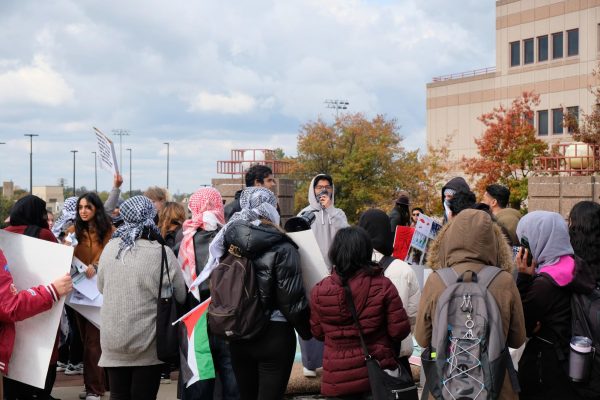
Monday’s events were not the first instance of potential protest during school hours. Earlier this month, numerous Harrisites walked out of their Band 6 classes to attend a pro-Palestine rally organized by the Queens College Muslim Student Association. On Instagram, the THHS Muslim Students Association “highly encourag[ed]” students to attend, told them to “not be afraid of detention or suspension,” and emphasized that all underclassmen “must leave through the main gates” when leaving the school grounds to go to the event. According to the Citywide Behavioral Expectations that Mr. Condon cited in his email, “Leaving class or school premises without permission of supervising school personnel” is a level 2 infraction.
According to Ms. Levi, no student was punished for attending the protest. She said that they not only allowed students to walk to Queens College for the protest but sent personnel over to make sure that it was safe. “This is Townsend Harris,” said Ms. Levi. “We would never impede on a student’s ability to protest.”
Senior Iyad El Bouanani, who left his class to attend the rally, said that his teacher was “cool about it” and “did not ask any follow up questions.”
II. Teacher Speech
In claiming that they were singled out for hanging a Palestinian flag, the senior told The Classic that they believed the school was “hypocritical” to punish a student’s actions while ignoring political statements by teachers in classrooms and on social media.
In interviews The Classic conducted with multiple students per grade, students report that few teachers have mentioned Israel and Palestine in class. On social media, conversations that criticize teachers for being vocal about their views center on fewer than five teachers.
The Classic can confirm, however, that at least one of the teachers mentioned online held a full period conversation during a geometry class on November 6. According to interviews with four students in the class who asked to remain anonymous, the session left students feeling uncomfortable.
The Classic obtained audio recordings of the classroom discussion in which the geometry teacher repeatedly defended Israeli actions in Gaza, including the statement, “When the enemy hides within the civilians and fires at you from within civilians, [Israel is] left with very little choice… that’s the reason that all these innocent people are getting killed.”
At another point, he said the following: “Look at all the terrorist activity that’s taking place around the world…Who bombed us on September 11th? …the terrorist attacks that occurred in the Olympics and all these suicide bombings that happened in Europe and whatever. Who’s doing that? Who’s blowing themselves up in all these different cities around the world? Who’s doing it? You know, it’s not Israel.”
Students discussed the teacher’s comments immediately after class, and many took to social media to express their discomfort. Two students who were in the class told The Classic that the environment made them uncomfortable specifically because it felt biased against one group of people, with one student singling out the discussion of 9/11 and other terrorist attacks as a main reason for their discomfort. “That [moment] felt targeted,” one of the students said.
The teacher declined to comment to The Classic.
Without addressing allegations against any individual teacher by name, Mr. Condon said that any student complaints of inappropriate teacher speech in classrooms have been referred to the DOE, which investigates them. He said that he has also spoken to any teacher whom he thinks is speaking in a manner that is not appropriate for their class.
Regarding appropriate places to discuss this topic, Mr. Condon said, “I, for sure, don’t think [this] should be happening in math and science classes.”
On November 8, NYC Schools Chancellor David Banks sent an email to all DOE staff about voicing political views. He wrote, “School leaders, teachers, and other school staff should not express their personal views about political matters during the school day, while on school grounds, or while working at school events, and it is critical that they set aside their personal views during class discussions about current events.” In addition, he cautioned staff to be careful even on private social media accounts, saying that private expression “crosses the line” when it impacts the school environment.
In recent weeks, students have been circulating social media posts by some THHS teachers that express support for Israel. Though some posts are private, many alumni who have friended former teachers on social media are able to share the posts with current students.
The student who hung the Palestinian flag has shared screenshots of two THHS teachers’ social media posts in support of Israel as well as a post by the family member of a teacher (a family member who does not work at THHS).
Mr. Condon said, “I don’t think that looking at people’s families’ posts is fair game at all.”
The student told The Classic that they believed the teacher was posting pro-Israel content on their personal social media page but could not locate it being shared in public, so they used their family member’s image to represent the teacher’s views.
This increased attention on NYC teacher social media posts has only grown in recent days due to the incident at Hillcrest High School, which began after students circulated an image from a teacher’s Facebook page. On social media, Mayor Eric Adams said that what happened at Hillcrest was “a vile show of antisemitism” and said the DOE would be investigating “how this incident took place.”
Though THHS students have criticized teachers for expressing personal views, many have also criticized the school for not engaging in open discussions about Gaza and Israel in classes, as the city and school have in the past regarding other issues such as Black Lives Matter and gun control.
Iyad said, “I think that them not wanting to provide an opportunity for students to discuss this issue is due to it being this issue, and the school is afraid of what students might say and having that associated with the school.” He said avoiding discussions on the topic is itself a stance.
Student Union President Hellen Oliveira said classes should address the issue directly.
“Many of our Townsend classes run through curriculums that preach the importance of having open discussions and how, historically, silence has done nothing but further conflicts,” Hellen said.
III. Student Speech
Given the school’s recent attention to student speech on social media, The Classic interviewed students about their experiences discussing Israel and Palestine in and outside of school.
Several students said most of the posts they have seen express support for Palestine. Hellen, who said she’s “made it clear that [her] support lies with Palestine,” said “most of the posts I come across are pro-Palestine. This is mainly because I don’t have many friends who are or have voiced being pro-Israel.”
The vast majority of people The Classic has spoken to (from all perspectives) for this article have insisted on being anonymous, and many others would not comment even anonymously for fear of their views being revealed to members of the school community.
One student said they’re reluctant to share their own views, feeling targeted because of their Jewish identity. The student said that they have had some respectful discussions with others but have also faced backlash from people responding to their posts by “expressing their disagreement…in a harsh way.”
Freshman Aki Benjamin said that he primarily posts to debunk false stories he sees “on all sides of the conflict.” He said, “I am either told that I’m ‘supporting the colonial oppressors’ or going against my own religion and kin. There is a lot of pressure…to divide ourselves along pro-Israel and pro-Palestine lines, both led by extremes.”
Students who don’t post at all, either due to feeling uninformed or for believing it won’t make an impact, said they feel judged.
Junior Eleni Tsiouris said, “I personally don’t post on my social media at all, and I don’t think someone like me posting about it would spread awareness effectively because I don’t have a large platform.”
“There’s definitely an unspoken pressure to post, but not a strong one,” said Hellen. “I can sympathize with some of the students who choose not to post. It is very hard to openly speak about a topic you don’t understand, which is why I think our school’s decision to not talk about it does us no good.”
Iyad said, “If there’s any humanitarian crises going on around the world, it’s your duty to educate yourself on what’s going on so you can then make informed decisions about it and see if you can spread awareness.”
Considering students’ social media activity, the THHS Guidance Department sent an email to all students on November 22 called “Mindful Social Media Interactions” that mentioned “everything going on in the world.” The email said, “When interacting with peers online, be respectful in your posts, comments, and messages….Healthy debate sharpens critical thinking, but we must challenge ideas constructively rather than attack individuals.…We are confident that if we lead with empathy and trust, we can have vigorous debates while still appreciating the humanity in those around us.”
Regarding creating a space for more direct conversations about the topic with students, Mr. Condon said, “I talked to a few teachers about smaller conversations in smaller settings that would help to sort of think this through in a more reasonable, less emotional, more empathetic way. But that’s going to take a little while, and it’s going to require a bunch of people to get involved and put the effort in to do that. But I think eventually we’ll get there.”
Hellen said it was time for the school to directly confront the issue by helping students “learn and develop an understanding on the matter.” She said, “I think we should spend less time focusing on who posted what and more time on ensuring people understand what’s going on outside of their Instagram feeds.”



























